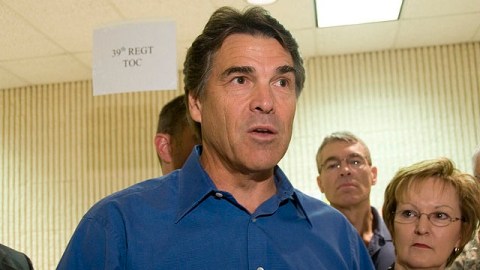Republicans Want to Increase Taxes on the Poor

For the last two years the Republican Party has largely taken the position that taxes should never go up. They should only be lowered. For all the party’s talk of deficit reduction, Republicans balked during the debt ceiling negotiations at increasing tax revenues—even just by closing loopholes—to reduce the deficit. And at the recent Republican presidential debate in Iowa, every single candidate indicated that they would refuse even a deal that would cut ten dollars of spending from the federal budget for every dollar in new tax revenues. Reducing the deficit isn’t worth it, in other words, if it means raising taxes.
But it’s increasingly clear that in spite of their rhetoric lower taxes in general is not the Republican Party’s main goal. What they want is lower income taxes. Income taxes, of course, are progressive, which means they are paid mostly by the rich, whose income is taxed at a higher rate. The effective income tax rate on the richest Americans’ has fallen dramatically since the mid-1990s—and investment income is often taxes at a lower rate—but the rich still pay most of the nation’s income taxes. In fact, half of Americans—the poor, elderly people who get their income from social security, and a few richer people who benefit from various tax breaks—pay no income tax whatsoever. And the number of Americans who pay no income tax has risen sharply over the last few years as the bad economy has made more Americans poor and the government has extended new tax breaks as part of its stimulus efforts.
That doesn’t mean half of Americans pay no taxes, however. That’s because income tax isn’t the only type of tax. Other taxes, like sales taxes and the payroll tax, are regressive. The relatively poor, who have can’t afford to save as much and who make a larger share of their income from wages, pay more of what they make in sales and payroll taxes. The payroll tax applies only to the first $106,800 of a person’s wages in any case, so if you make you more than that you don’t pay any payroll tax on any income beyond that amount. When you consider all the different types of federal taxes together, the effective tax rate on the rich is still higher than on the poor, but not that dramatically. The Tax Policy Center calculates that in 2010 the average American, who made around $46,000 a year, paid 14% of their income in taxes. Someone in the top 1% of all earners—a group whose median income is over $800,000—paid on average about 26% of their income in taxes.
The same Republicans who opposed any increase in income taxes to lower the deficit oppose President Obama’s attempt to extend a payroll tax cut passed at the end of last year, on the grounds that the payroll tax cut increases the deficit. They also want to “broaden the income tax base” by forcing more lower income Americans pay income taxes, at the same time as they reduce the income tax for high earners.
The Republican position, in other words, is not that taxes should be lower in general, but that—in spite of what Warren Buffett says—the rich bear too much of the tax burden. They also argue that cutting taxes on the rich will do more to stimulate the economy than than cutting taxes on the poor, even though the consensus among economists is that the reverse is true. But ultimately what most Republican politicians want—Rep. Ron Paul (R-TX) is a notable exception—is not to lower taxes, but to shift the tax burden on to poorer Americans.
Photo credit: Patsy Lynch/FEMA





